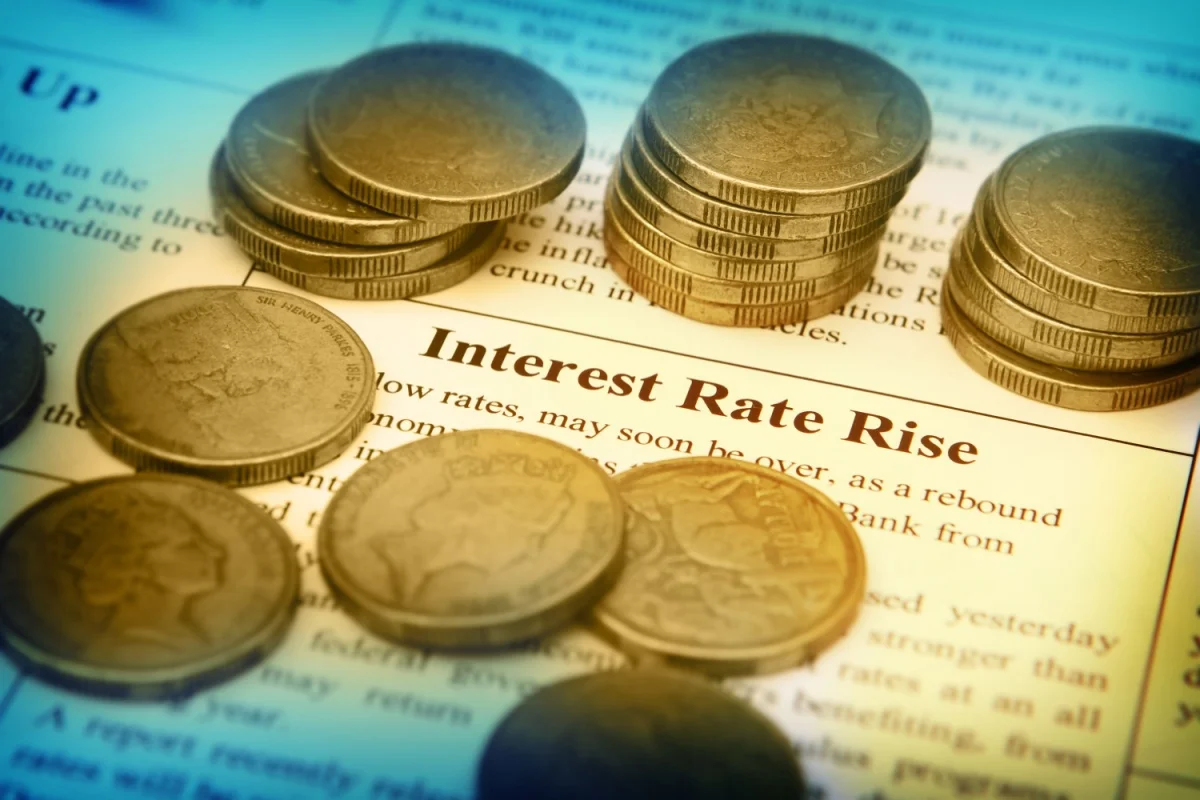Financial
Roadmap
A clear, personalised path to your financial goals.

Rising interest rates continue to be a massive concern for many Australians.
This is not just for homeowners, but everyone affected by the resultant increase in cost of living.
As interest rates rise, it can become increasingly challenging to cover your monthly costs. One option that some people consider is selling off assets to keep paying the bills.
While this may provide a short-term solution, there are pros and cons to this approach, particularly when it comes to retirement planning.
Selling off your assets can get you a quick, much-needed cash injection, which can be useful to cover expenses or pay off debts. This can be particularly useful if you are facing high interest rates on loans or credit card balances. By selling off belongings, you can pay off these debts and potentially reduce your overall interest costs.
Selling assets can also help you simplify your life by downsizing to a smaller, less expensive home, reducing your ongoing expenses.
One significant disadvantage of selling off assets is that it can affect your long-term retirement planning.
This can be particularly challenging if you sell off assets that were meant to provide income in retirement, such as rental properties or dividend-paying stocks.
Another potential drawback of selling assets is the impact of capital gains tax. If you sell an asset for more than you paid it for, you will owe capital gains tax on the profit. Depending on the asset, the capital gains tax can be substantial, reducing the amount of cash you receive from the sale.
If you’ve had to sell off assets, there are ways to mitigate the impact. One way is to reinvest the proceeds in other assets that provide income. For example, if you sell a rental property, you could use the proceeds to purchase dividend-paying stocks or invest in a rental property trust. This can provide ongoing income to help supplement your retirement savings.
Another option is to consider downsizing your lifestyle. If you can reduce your ongoing expenses, you may be able to live on less money in retirement, reducing the impact of selling assets.
Make an informed decision.
Consider the pros and cons, including the impact of capital gains tax and the potential depletion of retirement savings.
With careful planning, you can make informed decisions that help you meet your current needs while also protecting your long-term financial security.
Contact our team of financial advisors today to discuss retirement planning and asset management.
Every client journey begins with a conversation. We look closely at where you are now, what matters to you, and what’s possible. Then we structure our advice to match.
A clear, personalised path to your financial goals.
Proactive strategies to maximise your tax savings.
Tailored plans aligned with your goals and risk profile.
Regular guidance to keep your plan on track.
Early retirement and working professional
When Tim received an overseas medical settlement, he and Adam had just 14 days left in a 90-day window. They needed clear guidance, fast. A referral led them to First Financial.
“We’re in totally different life stages, but First Financial built a strategy that supports us both. From urgent legal steps to ethical investing, they handled every detail with calm, care, and real expertise. It’s financial freedom without compromise, and we couldn’t have done it without them.”

Retired widow
Lyn stepped into financial management for the first time after her husband's passing. With patience and care, First Financial supported her through grief, learning, and empowerment.
“After my husband passed, I was completely unsure where to start. First Financial gave me the space to learn, to ask questions, to grow confident. They drew a diagram that I still have. And now, I sleep well at night knowing I’ve got someone in my corner.”

Retired business owner
After decades of running a successful pharmacy, John sought financial guidance to simplify decision-making and support long-term planning.
“I feel genuinely supported by First Financial. I can ask anything, and there’s no pressure, just clear advice and real care. The money’s growing, I’m not stressed about it, and I feel completely at ease for the first time. I don’t miss work, but I’d miss the support I get from First Financial.”

Newly retired
As retirement neared, Larry and Virginia were ready to enjoy travel, family, and freedom, without uncertainty. A friend recommended First Financial, and from the first meeting, they had a clear plan, a safety net, and people they trusted.
“We’ve travelled the world, Europe, Sri Lanka, Vietnam, without once stressing about the money. They made everything feel simple and gave us the confidence to live well. We feel secure because we know exactly where we stand, and that peace of mind means everything.”

Retired
Jan's husband managed the finances until entering aged care. Jan gradually stepped into the financial picture with First Financial’s support.
“The money just comes in. I don’t have to think about it. And I know they’re always there. They’ve always been there in the background, just quietly making things work.”

Retired and semi-retired
Referred by friends who were helped through aged care, Craig sought secure financial guidance after inheriting funds.
“We feel very secure with First Financial, the income just comes in, and we know everything is being looked after. It’s not just safe, it’s smart. We’ve recommended them to others because we genuinely believe in the team.”









You can use the form below to make a general or initial enquiry.
You can also book a 15-minute call with an adviser by clicking the blue button below.
You can use the form on the right to make a general or initial enquiry.
You can also book a 15-minute call with an adviser by clicking the blue button below.
Fill in your details and briefly let us know how we can help.
We’ll reach out to schedule a time that suits you.
Enjoy an obligation-free initial meeting to discuss your goals and explore how we can guide you toward financial confidence.
Let’s start the conversation.
We look forward to hearing from you!
Level 9, 90 Collins Street,
Melbourne, VIC, 3000
Office Hours
Mon – Fri | 9:00 am – 5:00 pm